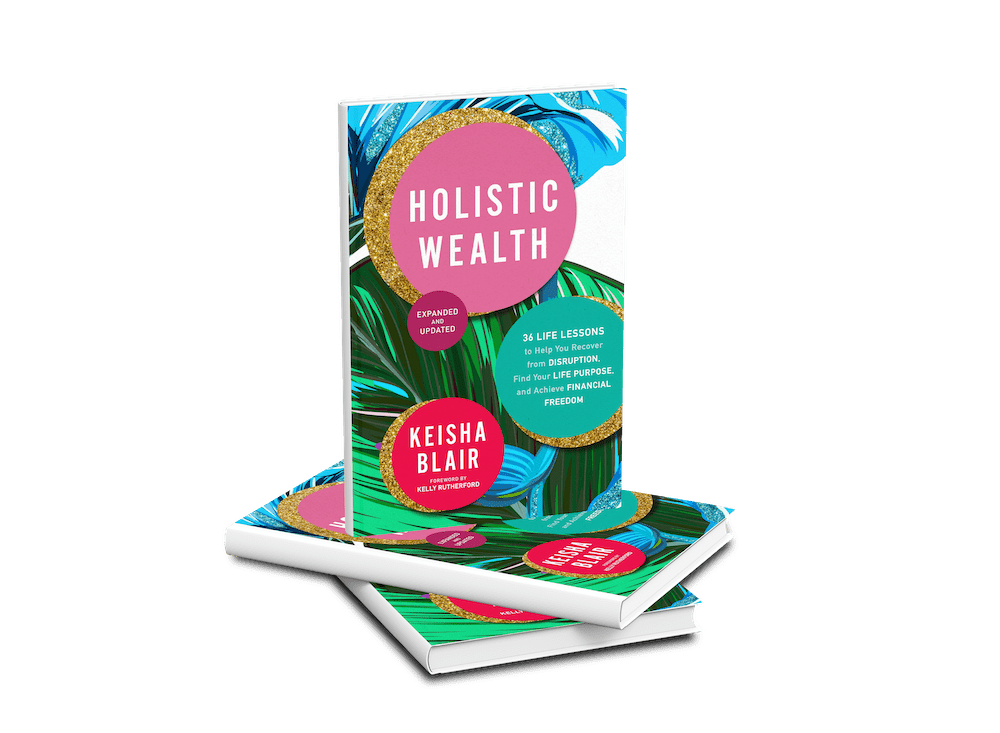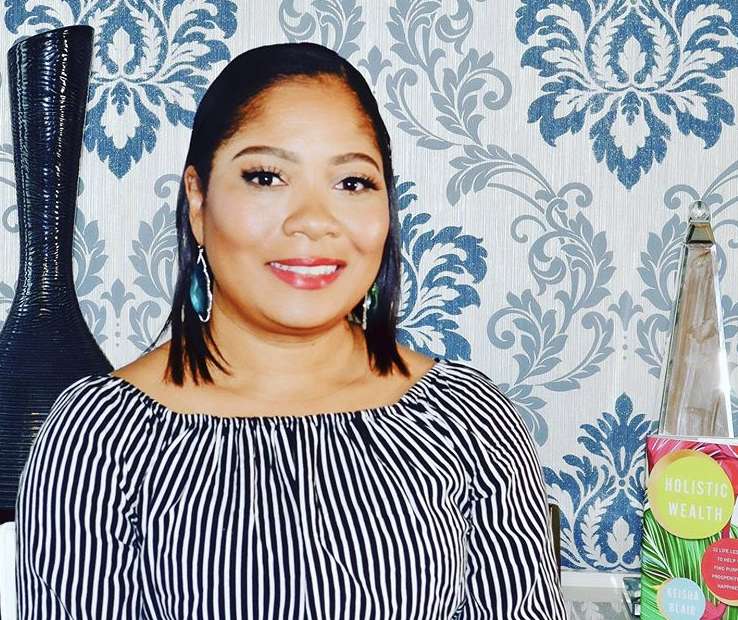By Keisha Blair
During the COVID-19 pandemic, which upended life worldwide, we experienced an unprecedented disruption on a scale and magnitude most of us have never seen before.
In writing my new book, Holistic Wealth (Expanded and Updated): 36 Life Lessons to Help You Recover from Disruption, Find Your Life Purpose, and Achieve Financial Freedom, I felt the need to focus further on “The Art of Recovery from Disruption,” and outline a framework to help others cope with financial trauma in their lives. The Holistic Wealth framework comprises the art of recovery from disruption more broadly.
If you are trying to cope with financial trauma and disruption, here are some tips to help you recover.
1. Focus on Financial Resilience
As a Harvard Trained policy expert and economist, I speak from first-hand experience when I say financial resilience is crucial to your overall financial well-being and economic security.
Financial resilience is the ability to bounce back from life-altering setbacks that impact our personal finances (including investments, income and assets), such as the death of a spouse or loved one, divorce, disability, health issues, unemployment as well as events such as economic fallout from a pandemic, a natural disaster or economic recession. It’s how well we can absorb, respond to and adjust to a financial shock.
An emergency savings fund, life insurance, passive income, assets and other investments help us to become financially resilient and overcome setbacks. During periods of financial trauma or disruption, we want to reduce debt as well as overall spending and shore up our overall financial well-being.
To be truly financially resilient, try to plan financially for two setbacks per decade. That means that you should aim to have enough sources of income and savings to cover you in the event that you have a financial setback twice in the same decade.
In the Certified Holistic Wealth ConsultantTM program that I teach at the Institute on Holistic Wealth, there are several modules aimed at increasing the level of financial resilience in an individual’s portfolio. We can assign an overall score to your portfolio as we try to increase the level of financial resilience and resourcefulness.

2. Deal With Any Unresolved Money Trauma
Unresolved financial trauma from the past can also lead to financial anxiety, which can further lead to making sub-optimal financial decisions over a lifetime, potentially costing individuals hundreds of thousands of dollars, from an investment perspective.
Our past experiences around money can be directly responsible for our emotions around money today. Financial anxiety can cause fear, doubt, and lack of confidence and block you from achieving your financial goals and your purpose in life.
In order to identify money trauma, survey your feelings about money. How does money make you feel? Do you tend to ignore your financial health, or do you deal with it head-on? What were your childhood messages around money?
Overcoming money trauma, knowing how to rewrite your own personal money story as well as mastering your money mindset is a critical part of achieving holistic wealth.
3. Take the Time to Understand Your Personal Financial Identity
I would advise anyone going through financial disruption to take my free quiz at instituteonholisticwealth.com to identify your financial identity.
It will help you become more self-aware to plan ahead financially in a way that’s authentic to you. Many guests on the holistic wealth podcast have indicated how it has helped them become more self-aware.
Embracing your own personal financial identity allows for self-awareness, self-preservation and self-advocacy. Whenever you feel anxiety, worry or stress around a certain money decision, practice the Holistic Wealth MethodTM that I outlined in Holistic Wealth, and start to think of your decisions as depletions or additions to your holistic wealth bank account.

4. Honour Your Own Personal Money Story
Your personal money story is unique to you and stems from your “story of self.” Use your personal financial identity to start re-writing your personal money trauma and story, and you will immediately start to feel a shift in energy and abundance.
If you are planning to take some time to recover from a disruption in your life, also plan in advance. At the Institute on Holistic Wealth, we have a sabbatical planning course available to everyone.
5. Release Your Fears and Embrace Holistic Healing
Money trauma and pre-existing money blocks often involve emotions wrapped up in fear and feelings of self-worth. It’s important to release trauma, fear, and anxiety around money.
Holistic healing addresses the mind, body, health and wealth connection to allow for a more holistic approach to healing our anxieties and stress associated with trauma.
Keisha Blair is a bestselling author, founder of the Holistic Wealth Movement and the Institute on Holistic Wealth, and host of the Holistic Wealth podcast; Keisha has been profiled in the New York Times, Real Simple Magazine, Forbes, the Harvard Business Review, and Essence Magazine.
Her viral article “My Husband Died At Age 34. Here Are 40 Life Lessons I Learned From It” was viewed by more than 50 million people globally. Connect with her on Instagram @keishaoblair.




